Governance
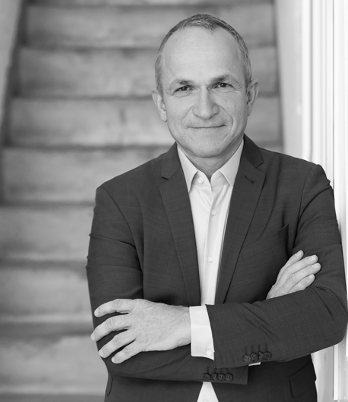
Director
Forensic Medical Expert
Former Consultant of the DVI Team Interpol Germany
Studied Dentistry and Medicine at University of Münster, PhD
Since 1997, Sven Benthaus was a scientist at the Institute of Forensic Medicine at the University of Münster in the working group of Prof. Bernd Brinkmann. In addition to traumatological studies, his research focuses on the identification of human remains. In the same year he became an external expert at the Identification Commission of the Federal Criminal Police. Dr. Benthaus has participated in numerous DVI missions as a forensic medical expert over the past 25 years, including exhumations of massgraves in former Yugoslavia as well as various missions in Germany and abroad.
He is particularly interested in the optimisation of standard operational procedures for disaster victim identification in major catastrophes and terrorist attacks. He is an editor for the International Journal legal medicine, editor and author for the DVI Guide Interpol and was a member of the Interpol Quality Management group for DVI in 2000.
He is co-founder of the Working Group for Forensic Age Estimation of the German Society of Forensic Medicine and founder of the International Identification Symposium of the German Armed Forces at the Medical Academy in Munich.
He is a member of the German war grave commission, which exhumes 15,000 war victims every year on behalf of the Foreign Office of the Federal Republic of Germany, regardless of their nationality.
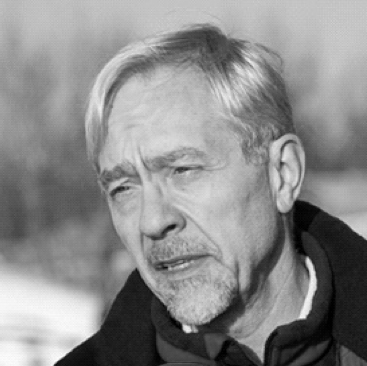
Deputy Director
Policy / Law Enforcement / DVI
Since 1976, he has worked in the Belgian police force in various operational (anti-gang patrols), logistical & technical ( weapons & ammunition specialist) functions. Joined the special units in 1992 where he performed administrative and technical functions, specialised in the use of explosives.
Volunteered for the DVI non-permanent team in 1992.
Participated in numerous DVI missions in Belgium and abroad (Romania in 1995, Kosovo in 1999 & 2000). International project officer in the special units for the European projects ATLAS (SWAT Teams) & CSW (Surveillance Teams)
Head of Department of the Belgian DVI in 2013.
Promoter of the European DVI courses of CEPOL (European Police College) in 2014. Trainer of the CEPOL DVI courses since 2015.
Responsible for the identification of deceased victims following the Brussels attacks. Promoter in 2017 of the European network of DVI experts.
Chairman of the European network of DVI experts in 2018 until September 2022. Retired from the police force on 01 October 2022.
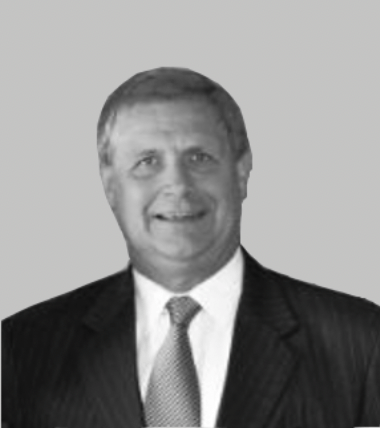
Director Science
Forensic Odontology Public Affairs
Master of dental Sciences Catholic University Leuven 1977
School for Criminology Ministry of Justice Belgium 1979
Legal Expert at Law School State University Ghent 2000
Participated in about 20 major disasters since 1987 ( train- plane – boat disasters, Tsunami 2004 Phuket, 2014 MH 17, 2016 Brussels Terrorist attacks, 2021 Floodings Belgium)
Chief forensic odontologist Disaster Victim Identification team Federal Police Belgium since 1987.
Past President IOFOS (International Association Forensic Odonto Stomatology) 1999-2002
Deputy Chair Scientific, Interpol DVI Standing Committee 2001 -2006
Associate and or Guest Professor in Under – and Postgraduate training courses on Forensic odontology and mass disaster management
Trainer in DVI management programs ( Malta Police, South Africa Police,Cepol)
Lecturer/ Examinator at the Academy of Forensic Medical Sciences, London, UK.
Published author and co-author of textbooks on forensic odontology and legal medicine in French, English and Dutch.
Reviewer on forensics odontology and DVI for numerous international scientific journals.
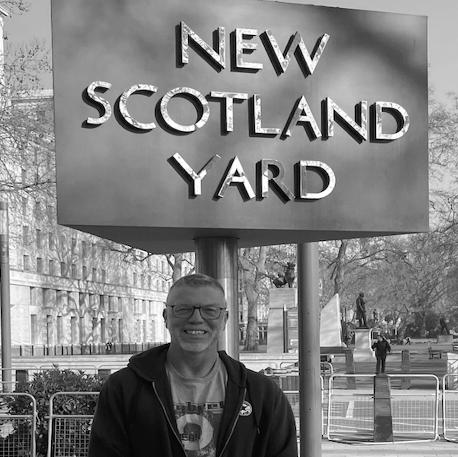
Head of Counter Terrorism / CBRN Crime Scene
From 1990, Pete worked in the Metropolitan Police London as a homicide detective.
For 15 years he worked in Counter Terrorism operations as an investigator then as Head of Unit for Forensic Management, EOD & CBRN. He was a CT Hostage Negotiator and trained to work in hostile environments, supporting the investigation of terrorism incidents involving British nationals.
Pete was involved in the investigation of a number of terrorism incidents in the UK, including 7/7, Westminster/London Bridge and CT incidents abroad in Algeria, Belgium, France, Sri Lanka & Tunisia.
For this period Pete was the UK coordinator for the support of victims of terrorism, affected by incidents in the UK and overseas. He assisted governments and countries in establishing methods and processes to support their own victims of terrorism incidents, for which he received the Queens Police Medal from HM Prince of Wales.
Pete was the UK National Coordinator for DVI from 2019 to 2022, when he deployed to DVI operations in the Bahamas and Lebanon. He established DVI management for British victims from major disaster incidents in Ethiopia and Iran, as well as smaller incidents in countries across Europe where British nationals were killed.
He is currently an advisor to the EU Vicitms of Terrorism Unit, the EU Project Bullseye establishing standard guidance in CBRN responses across all EU member nations.
Retired from the police force in March 2022.
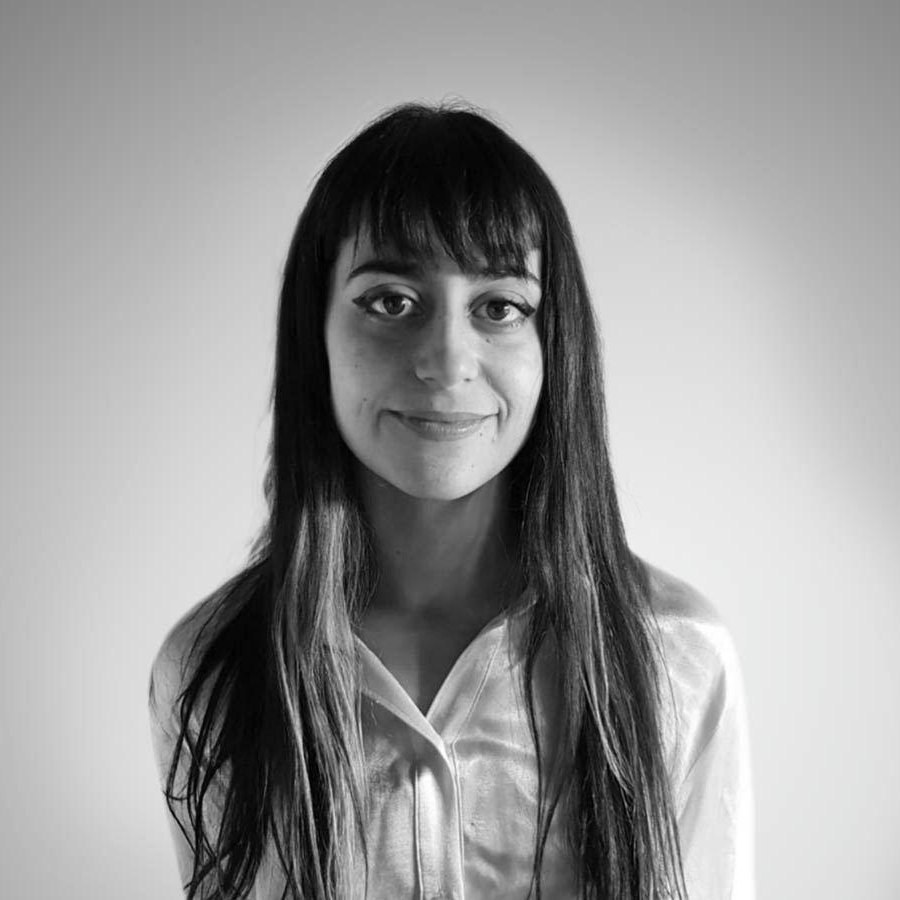
Head of Forensic Anthropology & Forensic Archiology
Graduated in Archaeology in 2017 from the University of Madrid, she pursued a MSc in Physical and Forensic Anthropology at the University of Granada, where she started to research in Craniofacial Superimposition.
In 2020 she started her doctoral investigation and since then she has successfully trained several experts at different international forensic institutions on the application of Craniofacial Superimposition. She has coordinated an international validation study of AI guided methods for Craniofacial Superimposition, and she has disseminated research results at various conferences, including the European Association of Forensic Sciences conference, the Forensic Anthropology Society of Europe Symposium and the International Association of Craniofacial Identification biennial meeting.
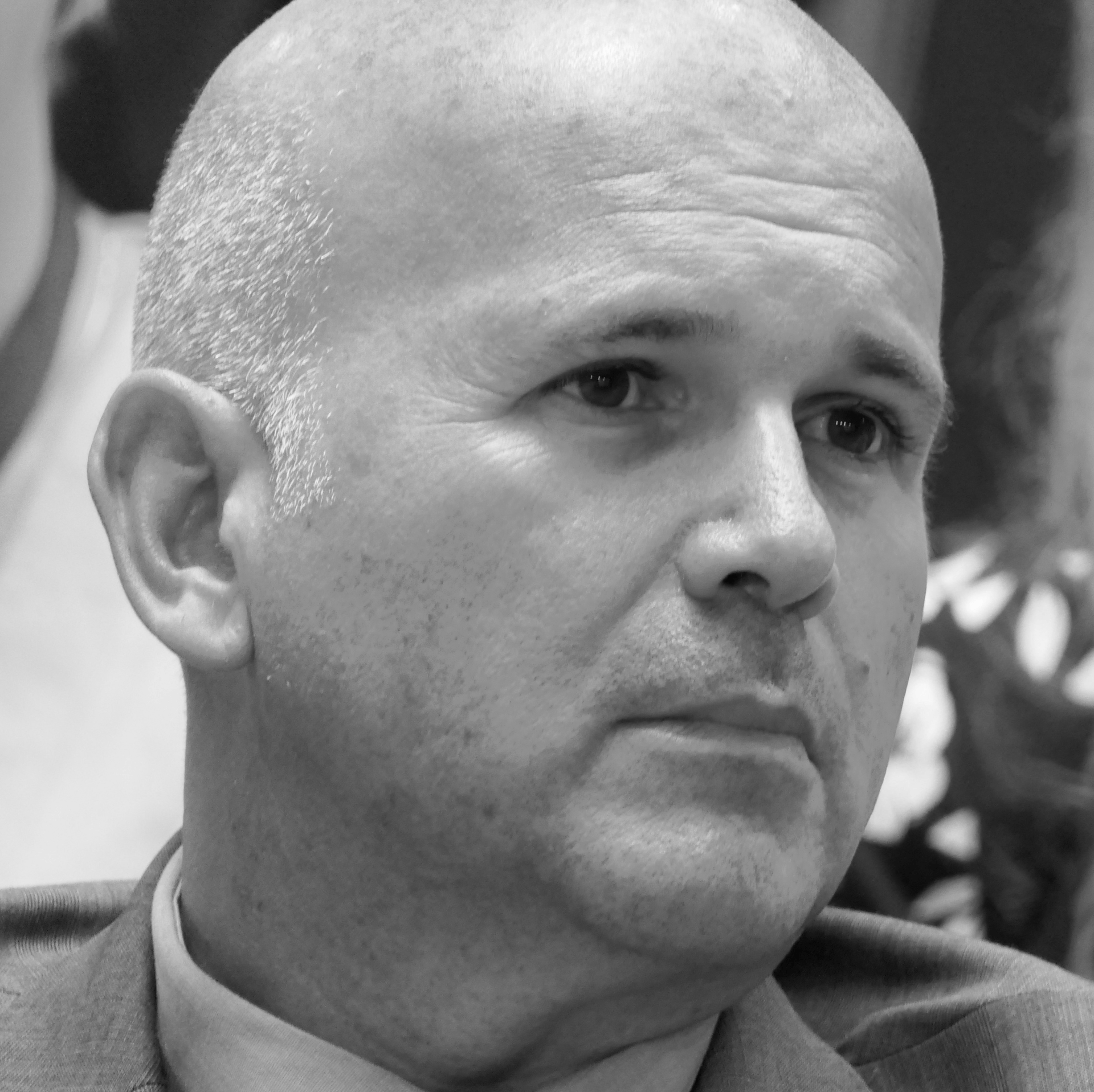
Head of Forensic Pathology International Cooperation
Djordje Alempijevic, MD, PhD, is Head of Institute of Forensic Medicine “Milovan Milovanovic” in Belgrade (Serbia), Professor (full), School of Medicine, University of Belgrade, teaching in forensic pathology, clinical forensic medicine, and public health aspects of forensic medicine. He received training at University of Belgrade in Serbia, and Monash University, Australia. His global health work, in the context of forensic medicine and human rights, has focused on prevention and documentation of physical signs of torture and ill-treatment, monitoring of places of detention, and investigation of human rights violations and war crimes. As an experienced forensic pathologist, he has participated in activities related to people unaccounted for during the armed conflicts in the Former Yugoslavia, participated in the ICRC project “The Missing”, and completed a mission to Georgia in relation to the armed conflict in Abkhazia; he had contributed to the EU led project of support to Libyan authorities in investigation of mass graves. He is a member of Steering Committee of the Independent Forensic Expert Group (IFEG), and he has conducted trainings on Istanbul Protocol in Finland, Serbia, Georgia, Kazakhstan, and Sweden, in addition to completing missions to the Russian Federation, Uganda, and Montenegro to collect forensic evidence on torture. From 2011-2021 he was the member of European Committee for the Prevention of Torture (CPT) with the Council of Europe in Strasbourg, France; in that capacity he took part to several the CPT’s visits to Armenia, Azerbaijan, Bulgaria, Georgia, Germany, Greece, Republic of Moldova, Russian Federation, Slovak Republic, Turkey, and Ukraine. Dr Alempijevic has given presentations on torture prevention and monitoring places of detention both nationally and internationally (Finland, Russian Federation, Montenegro, and Spain). He is a Foundation Member of the Faculty of Forensic and Legal Medicine at the Royal College of Medicine, London, UK. His memberships include the International Academy of Legal Medicine, and the American Academy of Forensic Sciences.

Head of Familiy Liaison & AM Collection
Since 9/11 Mlles has worked closely in his role as a Family Liaison Officer, with the families of Murder and Terror victims, as well as those lost in Mass Casualty Events around the world. Family Liaison Officers (FLOs) are assigned to the family of a person who has died, mostly in violent circumstances, guiding the family through the complex legal process. Acting as a single point of contact between the family and Senior Investigating Officer, the FLO performs the challenging role of aiding the family by providing practical support, whilst also meeting the needs of the investigation.
During The Tsunami crisis in 2004, Miles became one of the first Family Liaison Coordinators in The Metropolitan Police in London. Responsible for managing FLOs deployed to families, Miles coordinated the operational support to some of London’s most complex and celebrated investigations. From 2005 Miles was part of the FLO/FLC Cadre for Disaster Victim Identification (DVI) matters abroad and assisted with the repatriation and family support for the deaths of UK citizens abroad, including the earthquakes in Italy, Turkey, and Nepal as well as the Tsunami in Japan.
With significant operational experience Miles has led Family Liaison Teams deployed to the following
• Westminster Bridge attack, 2017: Family Liaison Coordinator
• Euro 2016, Marseille: supporting families of fans injured during mass disorder.
• Brussels bombing, 2016: FLO team lead as part of the Rapid Deployment Team for
The Foreign and Commonwealth Office (FCO)
• Paris attacks, 2015: Managed National FLO Coordination Cell for UK response to British victims
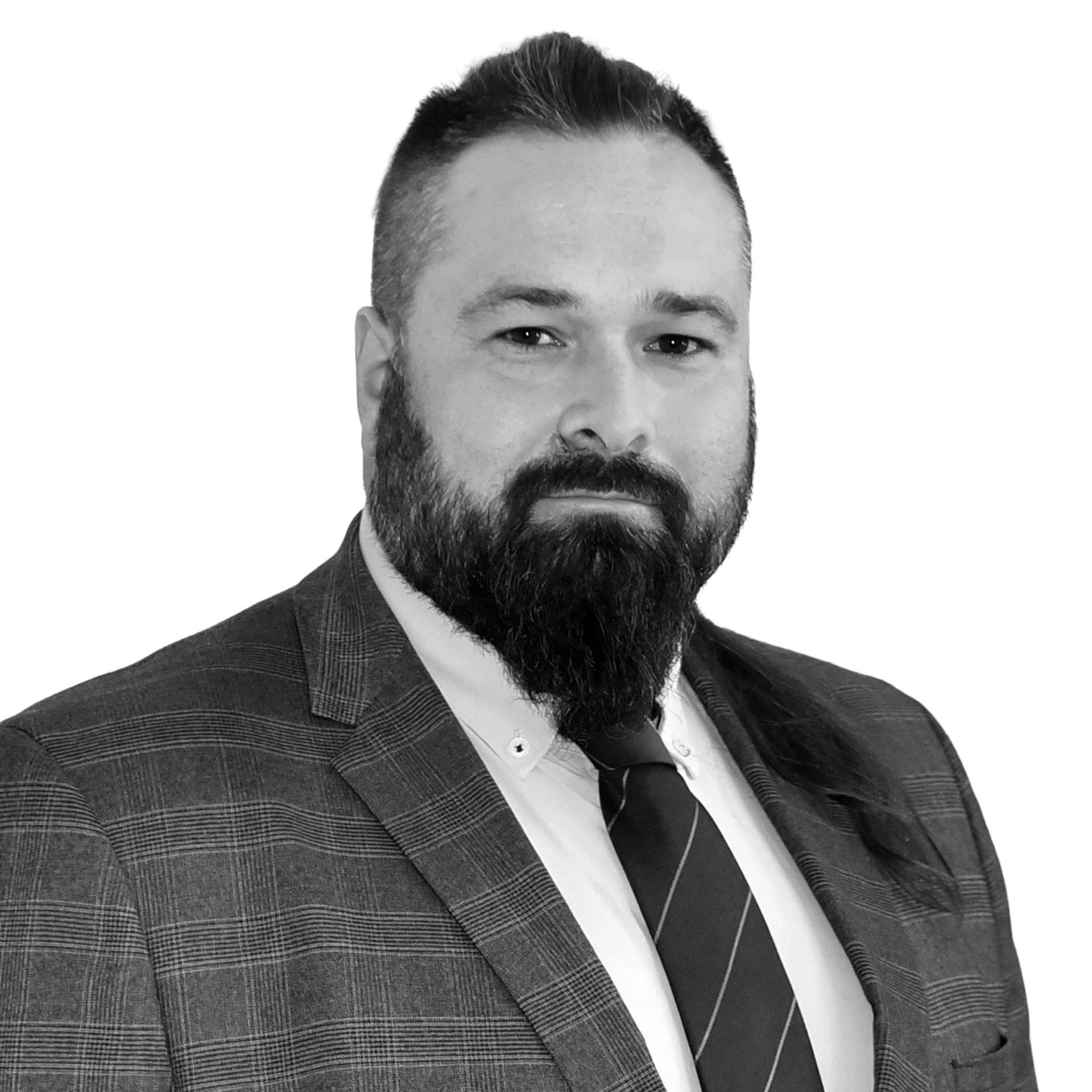
Head of DNA
PhD with Habilitation
Head of Institute of Forensic Medicine and Department of Forensic Genetics Pomeranian Medical Univerisity in Szczecin, Poland.
Assistant professor of Medical Sciences, a biologist by education, forensic expert practising forensic genetics, anthropology, and criminalistics. Graduate of the Faculty of Science and Faculty of Law and Administration of the University of Szczecin, doctoral studies at the Pomeranian Medical Academy in Szczecin. He began his career in 2002 in the Department of Forensic Medicine of the PMA in Szczecin. Author and co-author of several dozen scientific papers. He has issued over a thousand expert legal reports in forensic genetics, medicine, anthropology, and criminalistics. The originator and co-creator of the Polish Genetic Database of Totalitarianisms' Victims project, thanks to which identity is being brought back to the victims of totalitarian systems. He has worked on finding more than 10000 victims of the Second World War and the post-war period all over Europe and identified over 1000 of them. Within his scientific research, he participates in projects in forensic genetics, forensic anthropology, archaeology, criminalistics, and history.

General Director
Forensic Medical Expert
Former Consultant of the DVI Team Interpol Germany
Studied Dentistry and Medicine at University of Münster, PhD
Since 1997, Sven Benthaus was a scientist at the Institute of Forensic Medicine at the University of Münster in the working group of Prof. Bernd Brinkmann. In addition to traumatological studies, his research focuses on the identification of human remains. In the same year he became an external expert at the Identification Commission of the Federal Criminal Police. Dr. Benthaus has participated in numerous DVI missions as a forensic medical expert over the past 25 years, including exhumations of massgraves in former Yugoslavia as well as various missions in Germany and abroad.
He is particularly interested in the optimisation of standard operational procedures for disaster victim identification in major catastrophes and terrorist attacks. He is an editor for the International Journal legal medicine, editor and author for the DVI Guide Interpol and was a member of the Interpol Quality Management group for DVI in 2000.
He is co-founder of the Working Group for Forensic Age Estimation of the German Society of Forensic Medicine and founder of the International Identification Symposium of the German Armed Forces at the Medical Academy in Munich.
He is a member of the German war grave commission, which exhumes 15,000 war victims every year on behalf of the Foreign Office of the Federal Republic of Germany, regardless of their nationality.

Director Police
Policy / Law Enforcement / DVI
Since 1976, he has worked in the Belgian police force in various operational (anti-gang patrols), logistical & technical ( weapons & ammunition specialist) functions. Joined the special units in 1992 where he performed administrative and technical functions, specialised in the use of explosives.
Volunteered for the DVI non-permanent team in 1992.
Participated in numerous DVI missions in Belgium and abroad (Romania in 1995, Kosovo in 1999 & 2000). International project officer in the special units for the European projects ATLAS (SWAT Teams) & CSW (Surveillance Teams)
Head of Department of the Belgian DVI in 2013.
Promoter of the European DVI courses of CEPOL (European Police College) in 2014. Trainer of the CEPOL DVI courses since 2015.
Responsible for the identification of deceased victims following the Brussels attacks. Promoter in 2017 of the European network of DVI experts.
Chairman of the European network of DVI experts in 2018 until September 2022. Retired from the police force on 01 October 2022.

Director Science
Forensic Odontology Public Affairs
Master of dental Sciences Catholic University Leuven 1977
School for Criminology Ministry of Justice Belgium 1979
Legal Expert at Law School State University Ghent 2000
Participated in about 20 major disasters since 1987 ( train- plane – boat disasters, Tsunami 2004 Phuket, 2014 MH 17, 2016 Brussels Terrorist attacks, 2021 Floodings Belgium)
Chief forensic odontologist Disaster Victim Identification team Federal Police Belgium since 1987.
Past President IOFOS (International Association Forensic Odonto Stomatology) 1999-2002
Deputy Chair Scientific, Interpol DVI Standing Committee 2001 -2006
Associate and or Guest Professor in Under – and Postgraduate training courses on Forensic odontology and mass disaster management
Trainer in DVI management programs ( Malta Police, South Africa Police,Cepol)
Lecturer/ Examinator at the Academy of Forensic Medical Sciences, London, UK.
Published author and co-author of textbooks on forensic odontology and legal medicine in French, English and Dutch.
Reviewer on forensics odontology and DVI for numerous international scientific journals.

Head of Counter Terrorism / CBRN Crime Scene
From 1990, Pete worked in the Metropolitan Police London as a homicide detective.
For 15 years he worked in Counter Terrorism operations as an investigator then as Head of Unit for Forensic Management, EOD & CBRN. He was a CT Hostage Negotiator and trained to work in hostile environments, supporting the investigation of terrorism incidents involving British nationals.
Pete was involved in the investigation of a number of terrorism incidents in the UK, including 7/7, Westminster/London Bridge and CT incidents abroad in Algeria, Belgium, France, Sri Lanka & Tunisia.
For this period Pete was the UK coordinator for the support of victims of terrorism, affected by incidents in the UK and overseas. He assisted governments and countries in establishing methods and processes to support their own victims of terrorism incidents, for which he received the Queens Police Medal from HM Prince of Wales.
Pete was the UK National Coordinator for DVI from 2019 to 2022, when he deployed to DVI operations in the Bahamas and Lebanon. He established DVI management for British victims from major disaster incidents in Ethiopia and Iran, as well as smaller incidents in countries across Europe where British nationals were killed.
He is currently an advisor to the EU Vicitms of Terrorism Unit, the EU Project Bullseye establishing standard guidance in CBRN responses across all EU member nations.
Retired from the police force in March 2022.

Head of Forensic Anthropology & Forensic Archiology
Graduated in Archaeology in 2017 from the University of Madrid, she pursued a MSc in Physical and Forensic Anthropology at the University of Granada, where she started to research in Craniofacial Superimposition.
In 2020 she started her doctoral investigation and since then she has successfully trained several experts at different international forensic institutions on the application of Craniofacial Superimposition. She has coordinated an international validation study of AI guided methods for Craniofacial Superimposition, and she has disseminated research results at various conferences, including the European Association of Forensic Sciences conference, the Forensic Anthropology Society of Europe Symposium and the International Association of Craniofacial Identification biennial meeting.

Head of Forensic Pathology International Cooperation
Djordje Alempijevic, MD, PhD, is Head of Institute of Forensic Medicine “Milovan Milovanovic” in Belgrade (Serbia), Professor (full), School of Medicine, University of Belgrade, teaching in forensic pathology, clinical forensic medicine, and public health aspects of forensic medicine. He received training at University of Belgrade in Serbia, and Monash University, Australia. His global health work, in the context of forensic medicine and human rights, has focused on prevention and documentation of physical signs of torture and ill-treatment, monitoring of places of detention, and investigation of human rights violations and war crimes. As an experienced forensic pathologist, he has participated in activities related to people unaccounted for during the armed conflicts in the Former Yugoslavia, participated in the ICRC project “The Missing”, and completed a mission to Georgia in relation to the armed conflict in Abkhazia; he had contributed to the EU led project of support to Libyan authorities in investigation of mass graves. He is a member of Steering Committee of the Independent Forensic Expert Group (IFEG), and he has conducted trainings on Istanbul Protocol in Finland, Serbia, Georgia, Kazakhstan, and Sweden, in addition to completing missions to the Russian Federation, Uganda, and Montenegro to collect forensic evidence on torture. From 2011-2021 he was the member of European Committee for the Prevention of Torture (CPT) with the Council of Europe in Strasbourg, France; in that capacity he took part to several the CPT’s visits to Armenia, Azerbaijan, Bulgaria, Georgia, Germany, Greece, Republic of Moldova, Russian Federation, Slovak Republic, Turkey, and Ukraine. Dr Alempijevic has given presentations on torture prevention and monitoring places of detention both nationally and internationally (Finland, Russian Federation, Montenegro, and Spain). He is a Foundation Member of the Faculty of Forensic and Legal Medicine at the Royal College of Medicine, London, UK. His memberships include the International Academy of Legal Medicine, and the American Academy of Forensic Sciences.

Head of Familiy Liaison & AM Collection
Since 9/11 Mlles has worked closely in his role as a Family Liaison Officer, with the families of Murder and Terror victims, as well as those lost in Mass Casualty Events around the world. Family Liaison Officers (FLOs) are assigned to the family of a person who has died, mostly in violent circumstances, guiding the family through the complex legal process. Acting as a single point of contact between the family and Senior Investigating Officer, the FLO performs the challenging role of aiding the family by providing practical support, whilst also meeting the needs of the investigation.
During The Tsunami crisis in 2004, Miles became one of the first Family Liaison Coordinators in The Metropolitan Police in London. Responsible for managing FLOs deployed to families, Miles coordinated the operational support to some of London’s most complex and celebrated investigations. From 2005 Miles was part of the FLO/FLC Cadre for Disaster Victim Identification (DVI) matters abroad and assisted with the repatriation and family support for the deaths of UK citizens abroad, including the earthquakes in Italy, Turkey, and Nepal as well as the Tsunami in Japan.
With significant operational experience Miles has led Family Liaison Teams deployed to the following
- Westminster Bridge attack, 2017: Family Liaison Coordinator
- Euro 2016, Marseille: supporting families of fans injured during mass disorder.
- Brussels bombing, 2016: FLO team lead as part of the Rapid Deployment Team for
- The Foreign and Commonwealth Office (FCO)
- Paris attacks, 2015: Managed National FLO Coordination Cell for UK response to British victims
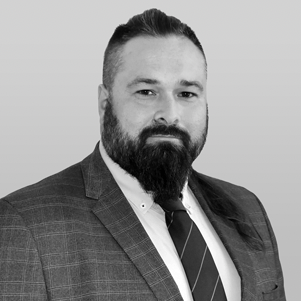
Head of DNA
PhD with Habilitation
Head of Institute of Forensic Medicine and Department of Forensic Genetics Pomeranian Medical Univerisity in Szczecin, Poland.
Assistant professor of Medical Sciences, a biologist by education, forensic expert practising forensic genetics, anthropology, and criminalistics. Graduate of the Faculty of Science and Faculty of Law and Administration of the University of Szczecin, doctoral studies at the Pomeranian Medical Academy in Szczecin. He began his career in 2002 in the Department of Forensic Medicine of the PMA in Szczecin. Author and co-author of several dozen scientific papers. He has issued over a thousand expert legal reports in forensic genetics, medicine, anthropology, and criminalistics. The originator and co-creator of the Polish Genetic Database of Totalitarianisms' Victims project, thanks to which identity is being brought back to the victims of totalitarian systems. He has worked on finding more than 10000 victims of the Second World War and the post-war period all over Europe and identified over 1000 of them. Within his scientific research, he participates in projects in forensic genetics, forensic anthropology, archaeology, criminalistics, and history.

